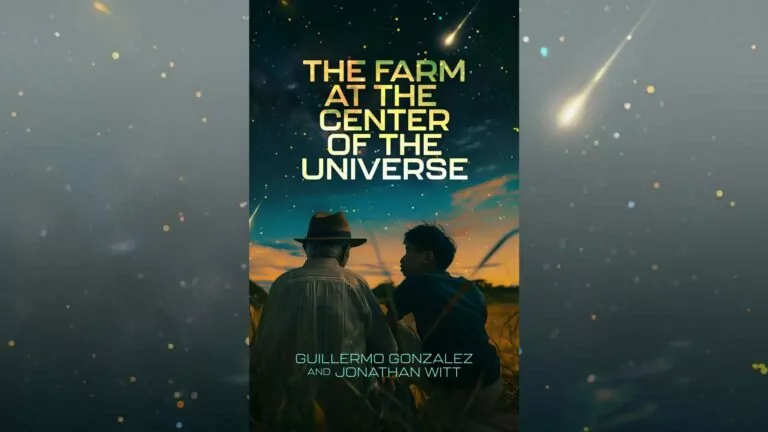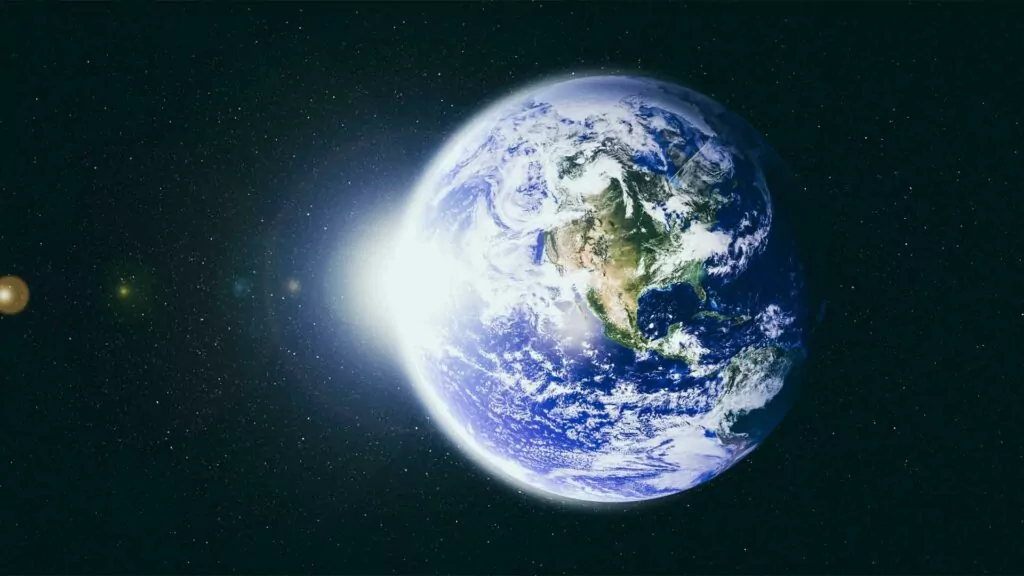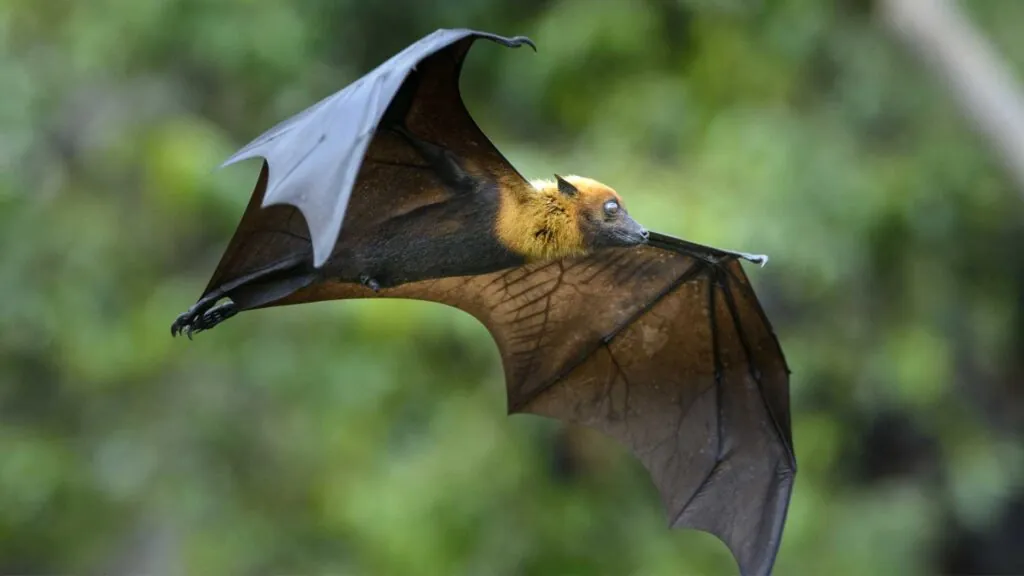by Guillermo Gonzalez and Jonathan Witt
2024 / 167 pages
Rating: Good/GREAT/Give
An astrobiologist has written a young adult novel with an Intelligent Design agenda, so the obvious questions are:
- Can he tell a good story?
- Does he honor God?
The answer to question #1 is yes, definitely, and to #2, no, or at least not nearly enough.
While the story doesn’t quite stand on its own, it’ll grab anyone who has even the least bit of interest in learning about atheistic evolution’s shortcomings. That’s why every Christian teen should read this before they finish high school – undirected evolution is one of our culture’s big lies (with fruit like euthanasia, abortion, homosexuality, etc.) so our students need to be ready to contend with it before they head to university or the workforce. And this novel format transforms what could have been a dry, dusty, academic debate into a much easier read.
As the opening chapter begins, Isaac and his older cousin Charlie are driving to visit their grandparents’ farm for a week. Isaac is a teen who wants to know why God let his dad die from cancer. Charlie is in his twenties, and is also Isaac’s science teacher (that’s what can happen in a small town) and he’s a tough love type, heavy on the tough. As a Darwin devotee, he tells Isaac that his dad’s death is proof there is no God, just an uncaring universe.
But it turns out Grandpa is not only a more sympathetic listener, he’s also a retired chemistry professor who has his own thoughts about how the universe came to be. He introduces Isaac to the “book of nature,” which gives all sorts of hints as to what happened in the distant past. And he also highlights how brilliant design gives evidence of a Designer. This is both the book’s strongest point and its weakest: it absolutely blows up evolution, but doesn’t offer the true, biblical, six-day alternative.
Still, it is a very helpful read, and fun too, especially when Grandpa debates Charlie. But Isaac isn’t sure exactly who he is rooting for.
“Part of him wanted Grandpa to be right about a Creator and Charlie to be wrong. Isaac didn’t want his dad’s death to just be random. If it were random, then there wouldn’t even be a God for Isaac to be angry at for letting it happen. But another part of him saw the attraction of his cousin Charlie’s view. The idea of a God so powerful He could create things like these microscopic machines that filled his body, but Who hadn’t even intervened to help his dad, was oddly frightening. It was almost easier to just ignore a God like that – insist He isn’t out there. The silent treatment. Punish Him for letting good people die. And, after all, maybe just maybe, there really wasn’t a God and he could just forget about all the hard questions.”
That highlights some of the book’s depth in raising the “problem of evil.” Though it is a theological, rather than scientific objection, it is one evolutionists will frequently raise: if a good God exists, why does He let bad things happen? But this also highlights why this isn’t a book teens should read alone, because the objection goes largely unanswered. Isaac rightly notes that his feelings have no impact on whether or not God exists. That’d be a scientific answer to this objection, and a good one to have in hand.
But teens should know the biblical answer too, as God gave it to Job, or as Paul teaches in Romans 9:20-21: “Who are you, a human being, to talk back to God?” And this answer needs to be understood in the context of this same God sending His Son to humble Himself and die for us. He has shown He is loving, so while we don’t understand all He does, we do know we can trust Him. That’s an important point, but one parents will need to provide. (Greg Koukl approaches the problem of evil from another direction with his helpful “problem of good.”)
As Grandpa and Charlie continue with their back-and-forths, it gives them both a chance to pitch the arguments for and against Intelligent Design. I’ve followed this debate for decades, and I think this fiction format allows for one of the most concise, clear, and devastating evolutionary takedowns I’ve read. One of my favorite bits is when Isaac is worried his Grandpa might be exaggerating a bit, when he says the cell is like a miniature factory, because, after all, factories “were massive, complex buildings filled with machinery and workers who built things like cars and trucks and Grandpa’s tractor.” Grandpa’s response?
“…you’re half right. Calling a cell a factory isn’t quite accurate…. It’s not quite a good comparison because I’m giving too much credit to man-made factories. A cell is more like, how can I put this? A factory that builds factories that builds factories. Or a robot that builds robots thats build robots. Do you know any man-made factories that do that?”
Despite Charlie’s best efforts, the legs are kicked out from under his Darwin idol.
Caution
But what’s left standing in its place? Grandpa briefly gives a nod to the Bible, reading from the opening four verses of Psalm 19 about how “the heavens declare the glory of God.” But he never addresses the opening chapters of Genesis. Grandpa doesn’t believe in unguided evolution, but it becomes clear he also doesn’t believe that God created in just six days.
The problem here is akin to the situation we have with a Jordan Peterson or even a Pierre Poilievre. In our blind land, these one-eyed men see so much better than most. But they are still seeing only half as well as they could. The book of nature that Grandpa appeals to offers him only hints and clues as to the reality and nature of God, but God has revealed Himself much more clearly in another book, His Word. If only Grandpa was willing to rely on the clearest of the two books, instead of leaning on his own understanding (Prov. 3:5-6).
Conclusion
While every Christian teen should read this, none of them should read it alone.
They should read The Farm at the Center of the Universe because of how it makes quick work of atheistic evolution. It’ll prepare them for many of the attacks a university prof might muster.
But while evolution-toppling accounts for about 99 percent of the novel’s contents, there is also 1 percent that misdirects by leaving open the possibility that God could have created over billions of years. Are the authors proposing some sort of theistic evolution? That’s never clearly stated, but it needs to have been ruled out. And since Farm is targeted to teens that 1 percent of misdirection shouldn’t be overlooked. Teens should read it, but with a teacher or parent alongside.












